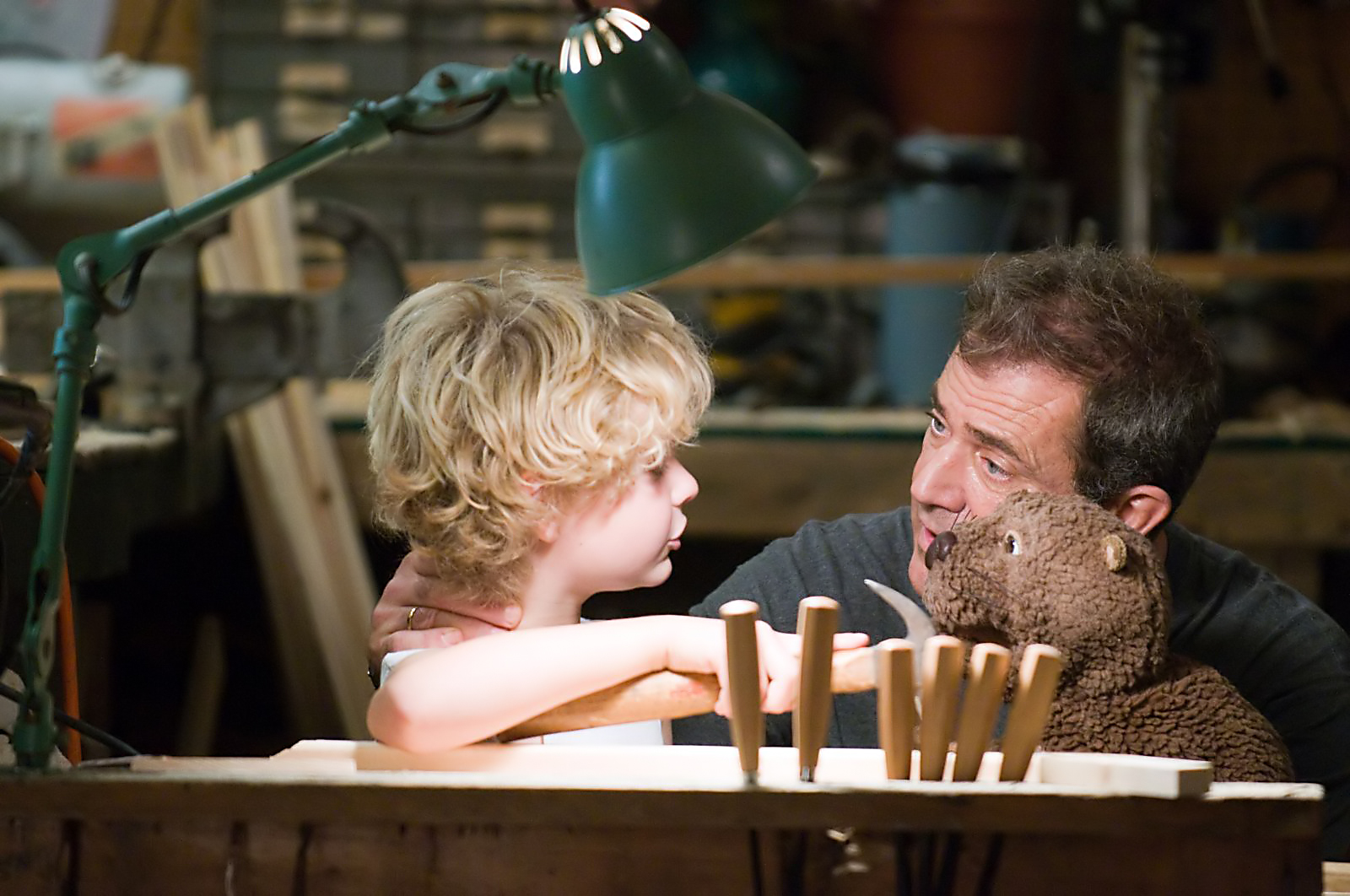“The Beaver,” ostensibly one film about psychological disorder, is actually a self-contained double feature filled with its own bipolar mood swings.
There’s the story you’ve likely heard about for months, in which Mel Gibson plays a severely depressed man named Walter Black, who gets his groove back when he starts talking to people through a beaver hand puppet.
And there’s the story you’ve seen a million times before, in which a boy and girl meet, develop feelings, find out each other’s dark secrets and stop talking for a while before reuniting in a glorious sunburst of puppy love.
The two plots are theoretically connected to one another, in that the boy is Black’s son Porter (Anton Yelchin), who spends his time at home either complaining that his father is crazy, documenting the traits he inherited or bashing his head into a wall.
But when he leaves home, he enters another, much more normal movie. It’s cut from the ancient cloth of love story cliches: Porter, who writes papers for his classmates, agrees to compose a commencement speech for the high school’s valedictorian (Jennifer Lawrence), whose award-winning intellect apparently balks at writing speeches.
But at least it’s a well-acted cliche. No one will believe that Yelchin and Lawrence are high school students, but the sparks are realistic enough, and they maintain their balance admirably as the script yanks them around with obnoxiously contrived twists.
If that part of “The Beaver” is predictably written and sedately acted, the rest is the exact opposite.
In addition to being a husband and father of two, Walter Black is also the CEO of a toy company called JerryCo, which means that once he starts his own strange rehab program, he’s not only talking at the dinner table through a puppet, he’s also doing it at board meetings.
But as strange as he looks with a stuffed beaver on his hand, Gibson never lets Black become a caricature. Say what you will about the actor’s personal life, he immerses himself completely into his character.
When Black looks ridiculous ““ and he does often ““ it’s not because Gibson isn’t taking himself seriously. It’s because he’s given fairly ridiculous material and framed in fairly ridiculous ways.
So it ends up that Jodie Foster is the most puzzling person involved. Even with all the people baffled by her decision to work with and direct Gibson, the movie itself raises a lot more questions. “The Beaver” is so erratic, so inconsistent in tone, it almost seems intentional, meant to mirror the disturbed psyche of Walter Black.
One minute Black’s condition is played for laughs, the next it’s deadly serious. Sometimes the beaver is cute, and sometimes it’s just odd. But as it becomes clear that Black has imbued the puppet with a separate, deeply manipulative personality, it starts getting creepy.
On a broader scale, the movie at times seems committed to complicated, realistic nuance, headed toward an ending that would acknowledge the difficulties and ripple effects of mental illness. But at other times it bows to the simplistic, sentimental impulse, and that’s where it ultimately ends up.
Through it all, Foster plays Black’s wife with reckless emotional abandon, as if she decided Gibson wasn’t being crazy enough and felt the need to compensate.
It starts from the opening sequence, as she stands on the porch after kicking her husband out of the house, her face contorted into a look that begs the audience to believe her sadness.
That scene is one of several throughout the film that includes voice-over narration, done in a Cockney accent that sounds vaguely like Michael Caine but turns out to be Gibson in the voice he gives the beaver. It’s the most tired and pedestrian of filmmaking techniques, but here it ends up seeming weird and slightly unhinged.
It’s fitting: If any movie needed a voice in its head, it’s this one.
Email Goodman at agoodman@media.ucla.edu.
